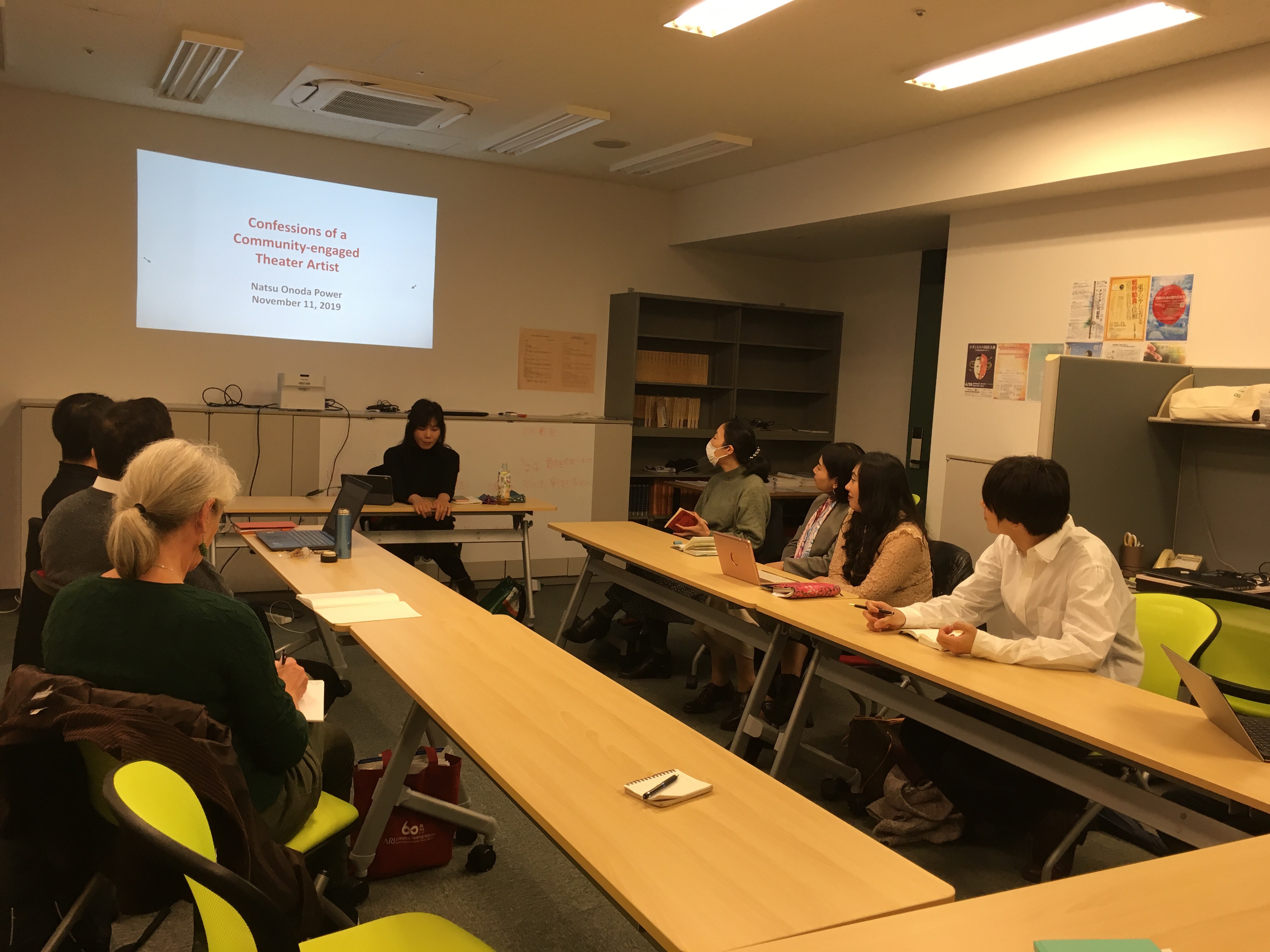On November 11, 2019, Waseda University’s Global Asia Research Center hosted a workshop entitled “Confessions of a Community-engaged Theater Artist: Dilemmas, Struggles, and Why I Keep Doing It”. Prof. Natsu Onoda Power shared her experiences and explored the challenges of ethnography and community-based theater.
Prof. Onoda Power began her presentation by asking the participants to stand up in a circle and join her to play a simple game. Everyone in the workshop enthusiastically followed her instruction of facing one another and clapping their hands. After several rounds of the game, the participants returned to their seats full of energy. From the game, She was trying to illustrate how face-to-face interaction is important for exchanging energy and related that to the nature of theater: live performance in front of people. She then introduced the definitions of theater from dictionaries, and focused on the meaning of “community-engaged theater” and the different categories of community-engaged theater.
Furthermore, She talked about the concept of “invisible theater” and the use of educational theater. She also introduced some terms that were being discussed in the U.S, for example, cultural appropriation, authenticity, the inclusion of actors from the those that we were representing (nothing about us without us?), equality, and diversity.
In the next part of her presentation, Prof. Onoda Power talked about her own work and the dilemmas that she faced when creating them. Her “The T Party” play came from her own experiences and desire to give back to the transgender community that has supported her during her times of struggles. Meanwhile, for the play “Charm”, she revealed the negative responses that the production team received, and contemplated the issues they faced. On the other hand, for the play “Wind me up, Maria! A Go-Go musical”, she talked about her passion for Washington D.C.’s Go-Go music scene. Her play utilized a loose adaptation of the music, with the intention of educating the audience about Go-Go and creating a safe environment for students/community. Despite some cultural clashes, the team worked together and came up with creative solutions for problems.
In the last part of her presentation, Prof. Onoda Power spoke about a new project on Okinawa and American military bases. She shared her experiences of protests, living in Okinawa, and racial issues in Asia.
Following the presentation there was a lively discussion, starting with the topic of the transferability of her research to the context of East Asia and the possibility of transformation for those that refused to change. Other participants also eagerly gave their views on the situation in East Asian countries and how we can adapt the research to other contexts.

